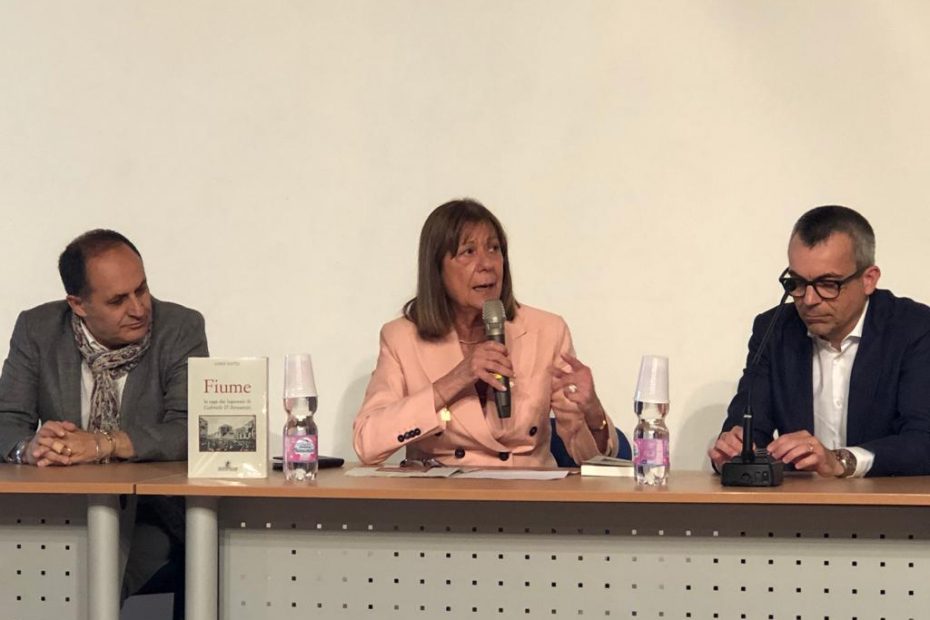The cohabitation of human resources and stones is essential to build and transmit the culture of peace: the audience was seduced by the gritty synthesis emerged from the last talk set up at the Marengo auditorium to hear the analysis on the novel “River. The saga of the legionaries of Gabriele d’Annunzio” narrated by the author Luigi Vatta.
“The thread of history – as was asserted by the Turin lawyer – combines Napoleon and the Julian-Dalmatian irredentism to the adventure stretched on the Adriatic coast from Rijeka (Istria) to Zadar (Dalmatia) and the book. The area passed from the Serenissima Republic of Venice to the Illyrian Provinces (French governorate existed from 1809 to 1814) and to the Napoleonic Kingdom of Italy then absorbed by the Habsburg Empire was claimed by Italy at the interwar period of the world wars. The armed assault (12 September 1919) on the city of Rijeka led by the nobleman Gabriele D’Annunzio together with the legionaries and artists, writers and politicians hostile to the mutilated victory was also relaxing. The Habsburg hierarch installed at the villa of Fiume decorated by the Gallic eagle returned the cultural spoils of war to the historic site of Marengo”.
“Culture – was exposed by the city council member Vittoria Poggio (culture, tourism, commerce – Piedmont Region) promotes growth in the territory. The Napoleonic saga extended to the Alexandrian gastronomy inscribes the chicken and polenta of Marengo to the Italian heritage”.
“Today – was added by the delegate Maurizio Sciaudone (Polo di Marengo – Provincia di Alessandria) – the brand Marengo promoted by Ujce (Union journalists and European communicators) expresses the vast area of Alessandria”.
“The war – was the kiosk of Efrem Bovo (Marengo temporary manager) – wears out whole peoples. The collective passion is vital to exhibit the grace of culture and freedom. The target is pursued by the Ujce also assisted by the groups of re-enactors promoting history and the human resources provided by the universal civil service”.
